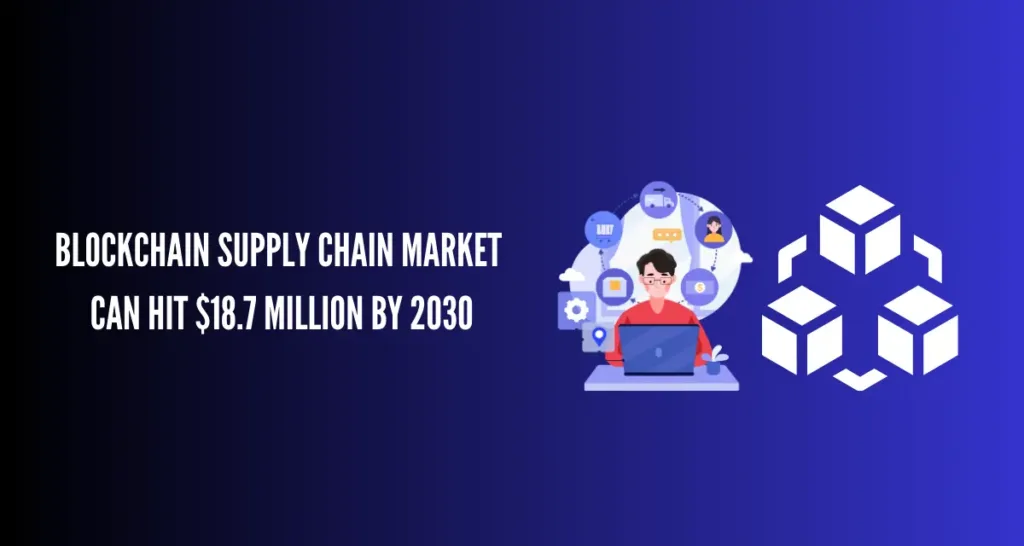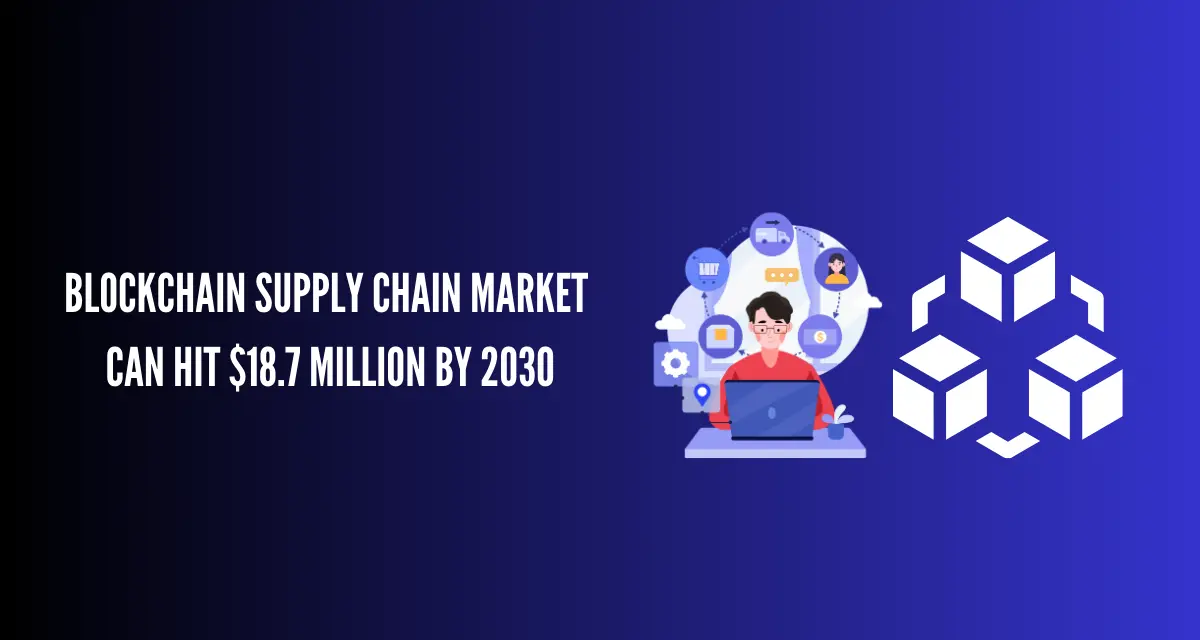Blockchain Supply Chain Market Knowledge
The Blockchain Supply Chain Market was valued at USD 497 million in 2021 and is expected to reach USD 18,714 million by 2030, growing at a 50.4% annual rate. This technology is reshaping supply chains by improving transparency, security, and efficiency. It helps solve issues like fraud, inefficiency, and trust gaps in supply networks. Industries are quickly adopting blockchain as part of their digital transformation efforts.
Blockchain technology’s decentralized ledger allows tracking every transaction and movement of goods across the supply chain. This creates a transparent, verifiable record for all parties involved, boosting trust and accountability. As a result, manufacturers to retailers benefit from improved supply chain oversight.
Market Overview: Transforming Supply Chain Operations
Blockchain technology is transforming supply chains by solving inefficiency, visibility, fraud, and counterfeiting issues. It simplifies complex networks, reducing delays, costs, and trust problems.
Blockchain’s decentralized ledger revolutionizes supply chain management by ensuring secure, transparent, and unchangeable transaction records. It gives all stakeholders equal access to information, reducing fraud and disputes while streamlining operations.
Key Growth Drivers:
Enhanced Transparency and Traceability
Blockchain enables real-time tracking of goods, ensuring transparency at every step of the supply chain. This increases accountability and helps trace products from raw materials to finished goods, making it vital in industries like pharmaceuticals and luxury goods.
Reduction of Supply Chain Fraud and Counterfeiting
Blockchain’s immutable ledger system permanently records transactions and product movements, reducing the risk of fraud and counterfeiting. It provides an indisputable record of product authenticity, improving trust across the supply chain.
Improved Efficiency and Reduced Costs
By eliminating intermediaries and automating processes like payments and document verification, blockchain speeds up supply chain operations. This results in reduced operational costs, faster processing, and fewer human errors.
Security and Data Integrity
Blockchain’s decentralized nature ensures data is tamper-proof, with encrypted transactions spread across multiple nodes, making breaches nearly impossible. This security is crucial for protecting sensitive supply chain data like shipments and contracts.
Support for Sustainability Initiatives
Blockchain allows companies to track the environmental impact of their supply chains, ensuring ethical and sustainable practices are followed. This transparency is important as consumers and regulations increasingly demand eco-friendly products and operations.
Benefits of Blockchain in Supply Chain Management
Real-Time Data Visibility:
Blockchain provides all stakeholders with real-time access to product status and location in the supply chain. This transparency builds trust and reduces disputes and delays.
Seamless Collaboration Among Stakeholders:
With blockchain, all parties operate on a unified platform, improving collaboration and reducing miscommunication. Smart contracts automate payments, minimizing the need for manual intervention.
Faster Dispute Resolution:
Blockchain’s immutable records make transactions easily verifiable, speeding up dispute resolution in supply chains. This transparency reduces conflicts between suppliers and buyers.
Inventory Optimization:
Blockchain enables accurate, real-time inventory tracking, helping businesses optimize stock levels. This prevents overproduction or stockouts, boosting supply chain efficiency.
Enhanced Consumer Trust:
Blockchain gives consumers access to verifiable product origin information, increasing transparency. This helps businesses meet ethical standards, improving brand loyalty and trust.
Future Aspects of the Blockchain Supply Chain Market
Integration with Internet of Things (IoT):
The combination of blockchain and IoT will revolutionize supply chain management by enabling real-time monitoring of goods through sensors. This is particularly useful for industries like food and pharmaceuticals, where conditions like temperature and humidity are crucial.
Smart Contracts for Automation:
Smart contracts on blockchain will automate actions such as payments and shipment releases when conditions are met, reducing manual processes. This will speed up supply chain operations and lower business costs.
Blockchain-as-a-Service (BaaS):
BaaS platforms from companies like IBM and Microsoft will simplify blockchain adoption, allowing businesses to use blockchain without large infrastructure investments. This will make blockchain accessible to small and medium-sized enterprises.
Blockchain for Ethical Supply Chains:
Blockchain will ensure transparency in ethical sourcing and sustainability, helping businesses prove their commitment to responsible practices. This technology will track everything from raw material sourcing to eco-friendly production methods.
Cross-Border Trade Facilitation:
Blockchain can streamline international trade by automating customs and reducing paperwork, making transactions faster and more secure. It will also provide auditable records to help businesses comply with complex regulations.
Strategic Initiatives for Market Growth
Partnerships with Supply Chain Leaders:
Key players are forming partnerships with established supply chain providers to boost blockchain adoption. These collaborations aim to integrate blockchain into traditional systems, providing better solutions for businesses.
Investment in Research and Development (R&D):
Ongoing investment in R&D is crucial to advancing blockchain technology. Companies are working on creating scalable, secure, and user-friendly platforms for supply chain needs.
Blockchain Education and Training:
To encourage blockchain adoption, businesses are investing in educating their workforce and partners about its uses and benefits. Training programs will be vital in helping industries understand and implement the technology.
Targeting Emerging Markets:
Emerging markets in Asia-Pacific, Latin America, and Africa offer significant growth opportunities for blockchain in supply chain management. Increasing demand for transparency and investments in digital infrastructure are driving market growth in these regions.
Focus on Interoperability:
As blockchain develops, ensuring compatibility between different platforms is critical. Companies are working on creating standards that allow seamless communication between blockchain networks to enhance adoption and functionality.
Challenges in the Blockchain Supply Chain Market
Scalability Issues:
The blockchain supply chain market faces challenges with scalability, needing to process high volumes of transactions globally. Balancing scalability with security and performance remains a key hurdle.
Regulatory and Compliance Concerns:
Blockchain’s decentralized nature can conflict with local regulations and industry standards. To achieve widespread adoption, businesses must navigate complex regulatory landscapes and ensure compliance.
Adoption Barriers:
Adopting blockchain technology demands significant changes to current infrastructure, which can be costly and complex. This poses a challenge, especially for small and medium-sized enterprises looking to implement the technology.
Author

Richard Thompson, our visionary CEO, leads with a passion for innovation and a commitment to driving results. With a wealth of experience in navigating the ever-evolving landscape of digital marketing, Richard inspires the team to deliver exceptional solutions that propel businesses to new heights. His strategic mindset and dedication to client success make him the driving force behind our mission to redefine digital excellence.
View all posts







